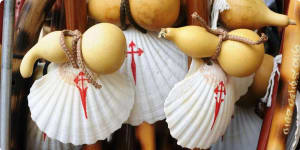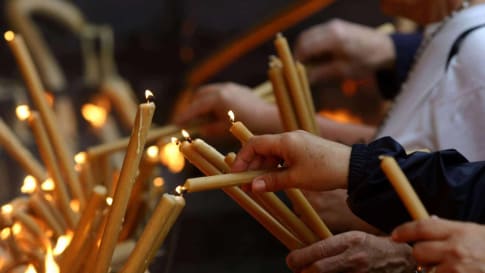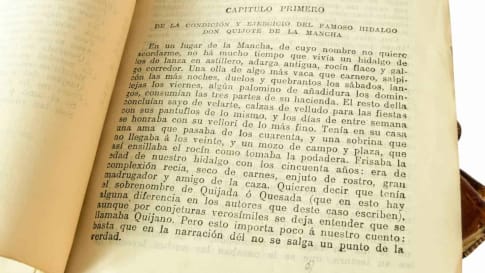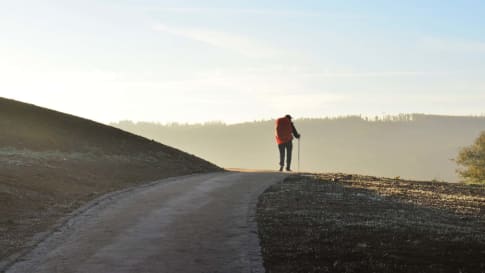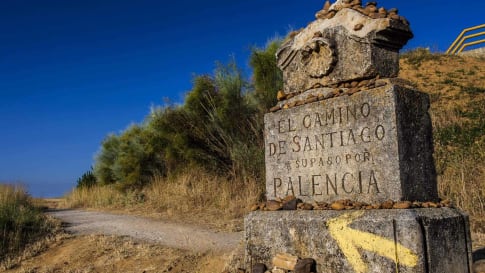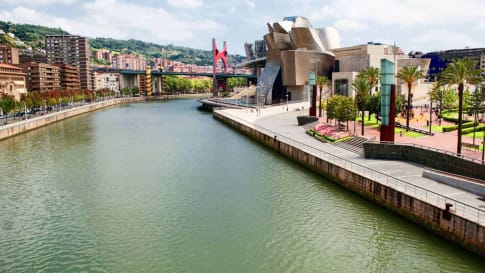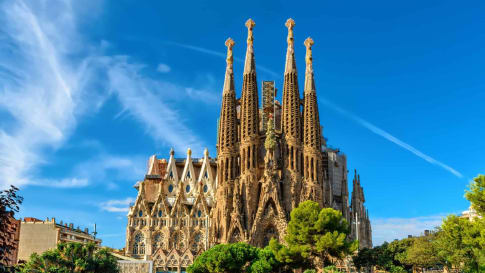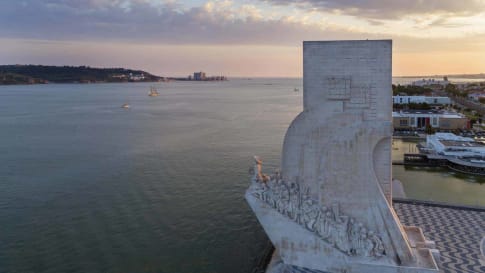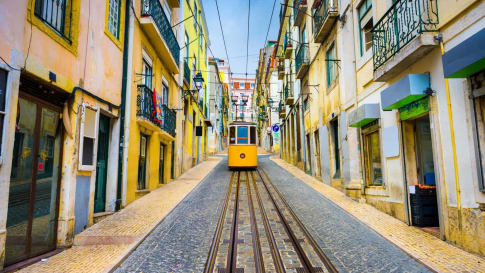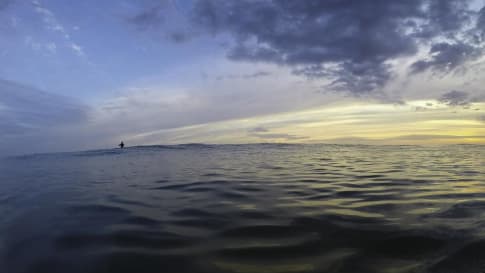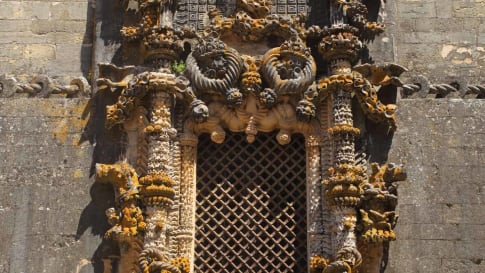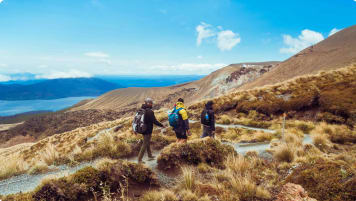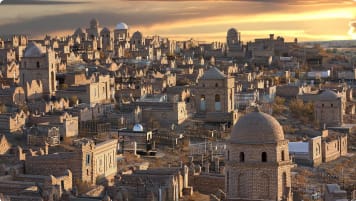Saint James Way Small Group Walking Tour (The Camino)- Spain
Experience pleasant sections of the Way of Saint James, crossing some of Spain’s most beautiful landscapes. We follow the pilgrims on easy distances of The Way to the mythical destination, Santiago de Compostella. Not since the middle ages has this adventure for body and mind been more popular. We also get to discover the artistic highlights and rich history of Northern Spain and Portugal, as well as enjoying local wines and exquisite food.
From A$14,135AUD
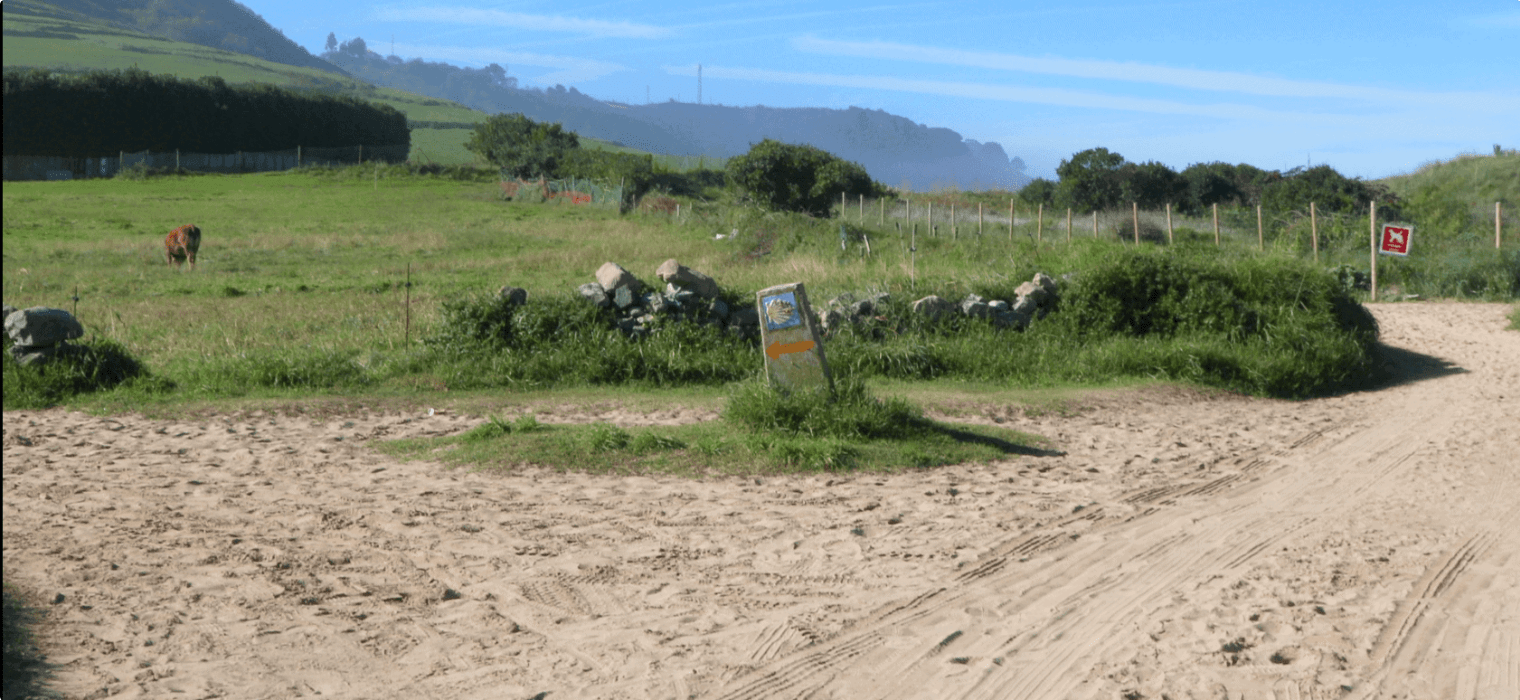
Highlights
- 1. Spoil the hedonist in you with La Rioja wine tasting in a bodega.
- 2. Familiarize yourself with the century old choir singing which is still practiced in the convents along our route.
- 3. Immerse yourself in the impressive Guggenheim art temple in Bilbao.
- 4. View the vast Castilian plains and mountain passes on the Way of St. James.
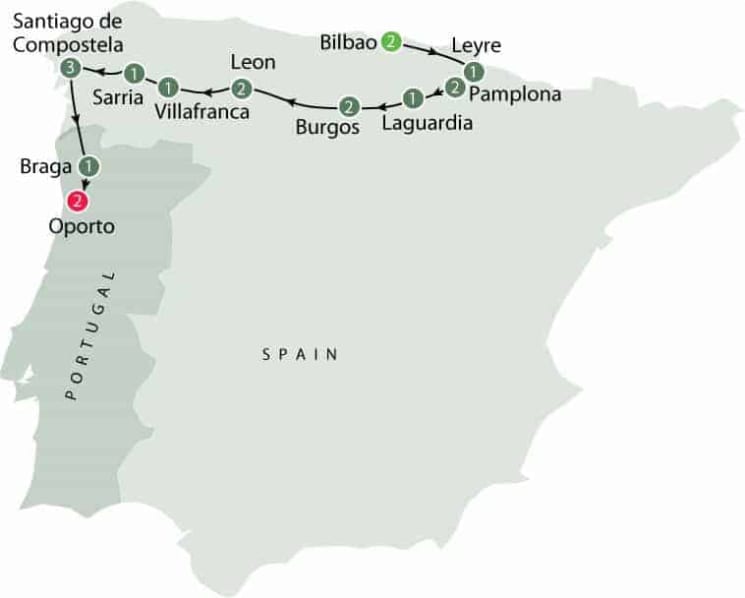
Departure Dates
| Departure Date | Price |
|---|---|
| 02 September 2024 Ends 20 September 2024 • 19 days A$14,135 Twin A$15,595 Single Available | Selected |
| 02 June 2025 Ends 20 June 2025 • 19 days A$14,795 Twin A$16,375 Single Available | |
| 01 September 2025 Ends 19 September 2025 • 19 days A$14,795 Twin A$16,375 Single Available | |
| 01 June 2026 Ends 19 June 2026 • 19 days A$14,795 Twin A$16,375 Single Available | |
| 31 August 2026 Ends 18 September 2026 • 19 days A$14,795 Twin A$16,375 Single Available |
Small Group Walking Tour of the Camino de Santiago
Walking the Camino is a small group walking tour through northwest Spain and Portugal on the Iberian peninsula. Taking the active senior traveller on the walking tour of Spain's Camino de Santiago through some of the most pleasant sections of this historic walk in Spain and Portugal. This Camino de Santiago tour for seniors is a pilgrims walk that embraces history and culture.
Over a 19 day period our Camino de Santiago tours for seniors experience the breathtaking scenery and picturesque sections of the Way of Saint James on a guided walk collecting a few of pilgrim passport stamps (compostela certificate) in the charming towns, sleepy villages and the gothic cathedral of Burgos are all encountered on this guided walking tour. The itinerary for this walking holiday while following the pilgrim path along some of its most beautiful landscapes through the flat, up into the undulating hills into medieval villages set deep in the beautiful countryside that defines el camino de Santiago as the Camino walk. This walk takes in Cape Finisterre, the symbolic end for many who have been walking the Camino route. Odyssey Traveller's article about the history of pilgrimage routes is useful to understand the historic significance of this hike.
Odyssey has selected relevant sections, not the entire camino, so that you experience Saint James Way, eventually reaching the historic destination Santiago de Compostela. Not since the Middle Ages has this adventure for body and mind been more popular as a pilgrimage or just a great walking tour of Spain's camino de Santiago route over 19 days with an achievable itinerary for mature and senior travellers joining this guided walking tour as a couple or solo traveler . The walking surface out on the camino trail, varies from gravel and farm tracks to paved road.
There are alternative routes such as the Camino Del Norte or del norte (Northern Way), which takes pilgrims along the Northern coast, from the Basque Country, across Cantabria, Asturias and on to Santiago de Compostela, in Galicia.
The history of Saint James way or Camino de Santiago
The Camino de Santiago, also known as the way of St James, is an ancient Catholic pilgrimage route to the cathedral in Santiago de Compostela in Galicia in northern Spain. Legend has it that the bones of the apostle St James were brought by boat from Jerusalem to northern Spain and are buried under the site of what is now the city of Santiago de Compostela.
Saint James way has been considered to be an important Christian pilgrimage route for more than 1000 years. It was considered by the church to be one of the three pilgrimage routes on which sins could be forgiven. There are many routes to Santiago de Compostela, starting from a variety of points, from as far away as Belgium to as close as 100km from Santiago.
Experience the Camino with Odyssey's small group tour
The Saint James Way Small Group Walking Tour is escorted by an Odyssey program leader. Odyssey's local guides are Camino experts, sharing with you their knowledge of the medieval pilgrims and the route walked to Santiago de Compostela.
As we understand differences in travel style, our tour is designed to be as demanding as you choose. You or your partner may elect to enjoy a slower day during the tour. Or you might decide to walk the appointed section that day. Odyssey has a fitness program designed to bring you up to a comfortable activity level prior to the tour that we circulate to all participants.
As we walk the Camino we discover the artistic highlights and rich history of Northern Spain and Northern Portugal. We make sure to take lunch breaks at local restaurants and tapas bars, so that you can sample the local wines and enjoy exquisite food selected by our local guide. We also stop in at the impressive Guggenheim art temple in Bilbao and have a night's accommodation at a monastery in Leyre, where we get to experience a centuries-old tradition of choir singing. From Sarria to Santiago we enjoy some of the most spectacular scenery on the Camino ways. Finally, we arrive at our destination, where we attend the Pilgrim's Mass and explore the local market.
The Saint James way small group tour is structured for the senior or mature couple or solo traveller. It is a tour that ultimately allows you decide how much activity you wish to enjoy. It also allows your travelling companion to participate in the walk whilst you enjoy yourself prior to meeting up again in the evenings. Of course the coach and program leader arranges all the luggage transfers freeing you up to enjoy the journey. We include a few days to enjoy a short trip to Portugal, that includes Porto. The timing of this tour allows senior travellers to join the Via de la Plata walking tour as well, which crosses Spain from South to North.
You can learn more about Spain and Portugal with Odyssey's country profiles, where all other departures to these destinations are listed as well. You can also take a look at other walking tours offered by Odyssey Traveller.
For more details about this tour, click the ‘Top 5’ or ‘Itinerary’ buttons above! If you’re keen to experience this tour, please call or send an email. Or, to book, simply fill in the form on the right hand side of this page.
Articles published by Odyssey Traveller for Walking and Hiking tours for seniors
- Selecting walking shoes for women
- Footwear and walking shoes
- What to pack when travelling
- Maintaining muscle fitness in senior and mature age travellers
- Selecting socks for walking
- Six great short walks in Britain
- Preparing for a walking holiday
- Pilgrim walks in Europe
- Walking in the Lake District
External articles to assist you on your visit to the Camino (St James Way)
- What should I know about Walking the Camino
- Meals on the Camino, advice on what to eat
- Selecting your coffee on the Camino
- The history of the Camino ancient secret; The BBC
- Camino pathways explained
Refreshed January 2021.
Gallery
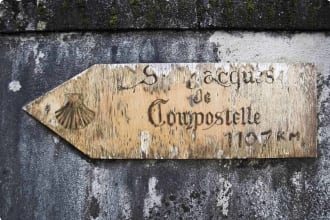
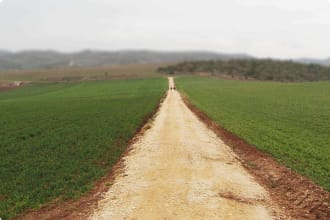
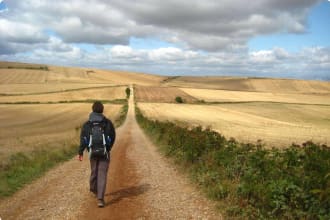
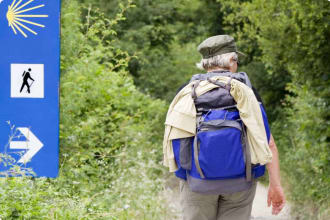
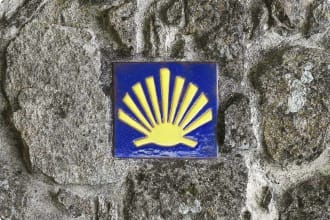
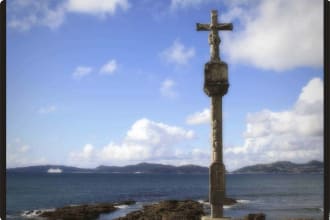
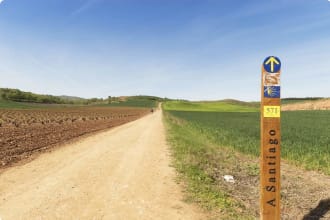
Itinerary
19 days
Day 1: Bilbao
Accommodation: 2 nights at Hotel Silken Indauxtu or similar.
Upon arrival in Bilbao we will come to the hotel individually. We will enjoy a welcome dinner in Bilbao.
Day 2: Bilbao
Accommodation: Hotel Silken Indauxtu or similar.
We will spend the day discovering this lively city, which was a centre of the Spanish industrial revolution in the 19th century. It rose out of post industrial decay by repositioning itself as a cultural hub with the stunning Guggenheim Museum at its heart.
Day 3: Bilbao to Leyre
Accommodation: 1 night at Hospederia de Leyre or similar.
From the hustle and bustle of Bilbao we move on to the sleepy town of Yesa, a place forgotten by time. We will have the perfect introduction to a pilgrim’s life overnight in a convent. In the evening we might witness the Monks rehearse in choir, before dinning at the hotel as a group.
Day 4: Leyre to Pamplona
Accommodation: 2 nights at NH Iruna Park Hotel or similar.
Today we will visit the monuments of San Juan de la Pena, where, according to legend, the holy grail was once kept hidden. For today’s walk we head out from the Old Monastery to the Balcon de Pirineos (roughly one hour) across an impressive landscape, with a picnic provided along the way. We continue to Pamplon and will have dinner at the hotel.
Day 5: Pamplona
Accommodation: NH Iruna Park Hotel or similar.
In the morning this small group walking tour enjoys a city tour in Pamplona, visiting the magnificent Cathedral and the world famous bull run. In the afternoon we walk a trail made famous by Ernest Hemingway. We will end the day’s activities with a visit to the convent of Roncesvalles, and a potential walk to Burguete. We then return to the hotel for a meal and wine.
Day 6: Pamplona to Laguardia
Accommodation: 1 night at Hotel Villa de Laguardia or similar.
Today we will visit the octagonal Church of Eunate, built by the Templars, before crossing the ancient pilgrims’ bridge Puente de la Reina. From here, we walk to Maneru (roughly 5kms, taking around an hour). Pilgrims and wine go together, so this evening, we enjoy a wine tasting in a bodega.
Day 7: Laguardia to Burgos
Accommodation: 2 nights at Hotel Silken Gran Teatro or similar.
Today, we will have a guided tour of the Cathedral of Santiago de la Calzada. In the afternoon we will follow the beautiful forested walk to San Juan de Ortega, with time for a picnic lunch along the way. (roughly 6kms, taking around an hour). We will end the day with a group dinner at the hotel.
Day 8: Burgos
Accommodation: Hotel Silken Gran Teatro or similar.
Today, we will enjoy a self-guided visit of the Miraflores Convent, which shimmers with gold from the new world. We’ll enjoy some free time to explore on our own before transferring to Burgos, where we will take a guided walk to the gate of the nearby cathedral. The rest of the afternoon is left free for you to further explore the local area, and we will meet back at the hotel for dinner.
Day 9: Burgos to Leon
Accommodation: 2 nights at Parador de Leon or similar
Today, we we walk 6kms (roughly 1.2 hours) over the Castillian plains, from Boadilla del Camino to Fromista, with a picnic on the way. We will then continue on to Leon, where we will have dinner in a local restaurant.
Day 10: Leon
Accommodation: Parador de Leon or similar
In the morning we can enjoy a guided tour of Leon, capital of Asturias from the 10th century and the center of Christian Spain. The tour will included a visit to Leon Cathedral, known locally as the House of Light, which is one of the most emphatic examples of Spain’s Gothic tradition, and is widely considered to have the most impressive collection of medieval stain glass windows in Europe. It is now a lively university town, and we will get the change to taste the local cuisine during a group dinner at a local restaurant in the evening.
Day 11: Leon to Villafranca
Accommodation: 1 night at Parador de Villafranca or similar.
This morning we will travel to the city of Astorga, where there is the option of a scenic walk to San Justa de la Vega. We will then visit the local cathedral, which reflects Spain’s rich architectural history, as the original 15th century Gothic structure has since been complimented by Renaissance, Baroque and Neo-Classical additions. Later in the day we will transfer to the iconic Iron Cross landmark in Cruz de Ferro, where there is another optional short walk to Manjarin . In the afternoon we will stop for a picnic lunch near the river Meruelo, which is the perfect place to cool down from the summer warmth with a gentle swim. We will then return back to the hotel in the evening in time for another group dinner.
Day 12: Villafranca to Sarria
Accommodation: 1 night at Hotel Carris Alfonso IX or similar.
Having driven over the Cebreiro pass, we start our journey into the greener side of Spain. We take a 45-minute walk (3kms) from O Cebreiro to Linares. After a bus ride to Pasanta, we then walk the 2kms to Traicastela (taking around half an hour). After stopping for a picnic lunch, there is an option to walk the 22kms (roughly four hours) to Sarria, or alternatively, to ride the bus. The option to walk is a great opportunity to cover some of the most important parts of the Camino pilgrimage.
Day 13: Sarria to Santiago
Accommodation: 3 nights at Hotel Gelmirez or similar.
Today we take a 1.5 hour walk (roughly 6kms) in Galicia to reach our ultimate destination: praza do obradoiro and the famous Santiago Cathedral. We experience the emotional scenes of pilgrims arriving at their long-awaited destination. At noon we attend the pilgrims mass at the Cathedral.
Day 14: Santiago de Compostela
Accommodation: Hotel Gelmirez or similar.
This morning we explore the local market, sample its produce and enjoy a guided tour of Santiago de Compostela. The afternoon is free to explore the city.
Day 15: Santiago de Compostela
Accommodation: Hotel Gelmirez or similar.
Today we drive to Cape Finisterre, a place that was once seen as the “end of the world”, with expansive views across the Atlantic. Later we drive south and explore the beautiful coastal Rias Bajas area.
Day 16: Santiago de Compostela - Braga
Accommodation: 1 night at Hotel do Parque or similar.
Today we start a short tour of Portugal. The group visits several destinations in Portugal that have contibuted to the history of Portugal. We start with a drive to Braga via Valenca do Minho, winding through woodlands, farmlands, villages, and towns. According to legend, St. James named the first bishop of Braga in the 4th century. Since then, Braga has been the capital of Catholic Portugal.
Day 17: Braga - Oporto
Accommodation: 2 nights at HF Fenix Porto or similar.
We start the morning exploring Braga, a traditional Portugese city. In the city center, medieval Braga Cathedral is home to a sacred art museum and the Gothic-style Kings’ Chapel. At the Bom Jesus do Monte complex a neoclassical church sits atop an elaborate 17-flight stairway. The courageous amongst us can tackle the endless stairs to the top of Portugal’s most spectacular sanctuary. Fortunately, for the others there is the funicular railway. We later depart for the city of Porto.
Day 18: Oporto
Accommodation: HF Fenix Porto or similar.
Today we spend the day in Porto, where a local guide will help you make the most of this fascinating city. The entire historic town centre is a Unesco World Heritage site. We will finish the day with a tour of the Port Cellar, followed by a tasting session.
Day 19: Oporto
After breakfast marks the end of our services. We suggest flights back to Madrid or Barcelona from Oporto’s International Airport.
Tour Notes
- A reasonable level of underlying fitness is required fro this tour.
- Group size is limited to a maximum of 18 participants.
Includes / Excludes
What’s included in our Tour
- 18 nights of accommodation.
- 18 breakfasts, 7 lunches, and 14 dinners.
- Services of a Tour Leader for the duration of tour.
- Applicable entry fees and services of local guides.
- Gratuities and necessary tips.
- Detailed tour information booklet.
What’s not included in our Tour
- International flights and departure taxes.
- Comprehensive travel insurance.
- Items of a personal nature such as telephone calls and laundry.
Participants must be in excellent health, extremely mobile and live an active lifestyle. Program activities may include up to 6 hours of continuous strenuous, moderate-to-fast paced activities per day on varied terrain.
Book now
Make it a private tour
Easing your journey
Crossing international borders with restrictions
The list of requirements to travel internationally has changed and will continue to change for several years. Odyssey is here to assist you in managing your way through these requirements:
For more information see our Crossing international borders with restrictions page.
Book With Confidence
If less than 30 days before your tour starts you are unable to travel as a result of Government travel restrictions, Odyssey Traveller will assist you with a date change, provide you with a credit or process a refund for your booking less any non-recoverable costs.
See Terms and conditions for details.
Peace of Mind Travel
The safety of our travellers, tour leader, local guide and support staff has always been our top priority and with the new guidelines for public health and safety for keeping safe for destinations around the world, we’ve developed our plan to give you peace of mind when travelling with us.
See Peace of Mind Travel for details.
Reviews
A wonderful combination of walking and sightseeing - perfect for those who want to experience the Camino without having to walk miles every day. Lesley C. Jun '23
Odyssey Travel have once again met my expectation. For one over 70 but always keen to experience the Camino Way the tour was meaningful, educational and full of good fellowship. Joan M. June'18
I consider that the balance of activities, along with the proactive good and easy-going tour leader, Bruce Cameron made for an overall very good experience. The tours with local guides were good and should be retained. Bruce's knowledge of flora and fauna was a great advantage and the bus travel was most enjoyable. I thought the selection of hotels was excellent. I enjoyed them all. The bus we used was great--plenty of room and not crowded. Margaret L. June '18
Overall the tour was a valuable exposure to Spanish culture and cuisine in addition to viewing many important heritage sites from an earlier period of Christian belief. Ken R. June '18
The St. John's Way trip is a perfect choice for the traveler who has dreamed of "doing" a Camino pilgrimage. It offers complete flexibility on choosing to walk or not walk on any given day following the French Way. Every step was rewarding and engaging. Barb W. June '18
Could not have improved the program. It was a wonderful experience. Loved being with the AUSTRALIANS . It was well executed and almost like a symphony orchestra. Perfect pitch. Fantastic organizational skills. The Australian spirit was so strong and powerful., Was very impressed with the whole trip. Thank goodness my apprehensions did not overtake me. What an incredible journey. The Odyssey Spirit's trip will be with me for a long time. Lucy B. USA June '18
Reading List Download PDF
Spain: The Centre of the World 1519-1682
Robert Goodwin
n the sixteenth century, the Spaniards became the first nation in history to have worldwide reach; across most of Europe to the Americas, the Philippines, and India. Goodwin tells the story of Spain and the Spaniards, from great soldiers like the Duke of Alba to literary figures and artists such as El Greco, Velázquez, Cervantes, and Lope de Vega, and the monarchs who ruled over them.
At the beginning of the modern age, Spaniards were caught between the excitement of change and a medieval world of chivalry and religious orthodoxy, they experienced a turbulent existential angst that fueled an exceptional Golden Age, a fluorescence of art, literature, poetry, and which inspired new ideas about International Law, merchant banking, and economic and social theory.
Moorish Spain
Richard A. Fletcher
Written in the same tradition as John Julius Norwich's engrossing accounts of Venice and Byzantium, Richard Fletcher's Moorish Spain entertains even as it enlightens. He tells the story of a vital period in Spanish history which transformed the culture and society, not only of Spain, but of the rest of Europe as well. Moorish influence transformed the architecture, art, literature and learning, and Fletcher combines this analysis with a crisp account of the wars, politics and sociological changes of the time.
Beginning in the year 711 and continuing for nearly a thousand years, the Islamic presence survived in Spain, at times flourishing, and at other times dwindling into warring fiefdoms. But the culture and science thereby brought to Spain, including long-buried knowledge from Greece, largely forgotten during Europe’s Dark Ages, was to have an enduring impact on the country as it emerged into the modern era. In this gracefully written history, Richard Fletcher reveals the Moorish culture in all its fascinating disparity and gives us history at its best: here is vivid storytelling by a renowned scholar.
Pilgrim Stories: On and Off the Road to Santiago, Journeys Along an Ancient Way in Modern Spain
Nancy Louise Frey
Each year thousands of men and women from more than sixty countries journey by foot and bicycle across northern Spain, following the medieval pilgrimage road known as the Camino de Santiago. Their destination is Santiago de Compostela, where the remains of the apostle James are said to be buried. These modern-day pilgrims and the role of the pilgrimage in their lives are the subject of Nancy Louise Frey's fascinating book.
Unlike the religiously-oriented pilgrims who visit Marian shrines such as Lourdes, the modern Road of St. James attracts an ecumenical mix of largely well-educated, urban middle-class participants. Eschewing comfortable methods of travel, they choose physically demanding journeys, some as long as four months, in order to experience nature, enjoy cultural and historical patrimony, renew faith, or cope with personal trauma.
Frey's anthropological study focuses on the remarkable reanimation of the Road that has gained momentum since the 1980s. Her intensive fieldwork (including making the pilgrimage several times herself) provides a colorful portrayal of the pilgrimage while revealing a spectrum of hopes, discontents, and desires among its participants, many of whom feel estranged from society. The Camino's physical and mental journey offers them closer community, greater personal knowledge, and links to the past and to nature.
But what happens when pilgrims return home? Exploring this crucial question Frey finds that pilgrims often reflect deeply on their lives and some make significant changes: an artistic voice is discovered, a marriage is ended, meaningful work is found. Other pilgrims repeat the pilgrimage or join a pilgrims' association to keep their connection to the Camino alive. And some only remain pilgrims while on the road. In all, Pilgrim Stories is an exceptional prism through which to understand the desires and dissatisfactions of contemporary Western life at the end of the millennium.
"Feet are touched, discussed, massaged, [and] become signs of a journey well traveled: 'I did it all on foot!' . . . Pilgrims give feet a power and importance not recognized in daily life, as a causeway and direct channel to the road, the past, meaningful relations, nature, and the self."
Walk in a Relaxed Manner: Life Lessons from the Camino
Joyce Rupp
At age 60 Joyce Rupp didn't know what she was getting into when she began a 47-day pilgrimage along the Camino de Santiago in Spain. Joined by her walking friend Tom, a retired pastor, Joyce learned lessons that can help all of us travel on life's up and down journey with more grace and lightness. She shares them in this enjoyable recounting of her journey across mountains and valleys, cities and farms. - Set Out with Hope and Enthusiasm - - Travel Lightly - - Acknowledge the Kindness of Strangers - - Let Yourself Be Humbled by Weakness - - Savor Solitude - - Return a Positive for a Negative - - Look for Unannounced Angels - - Trust in the Divine Companion -
I'm Off Then: Losing and Finding Myself on the Camino de Santiago
Hape Kerkeling
From one of Germany s most beloved celebrities, a cross between Bill Bryson and Paulo Coelho.
It has sold over 3 million copies and been translated into eleven different languages. Pilgrims have increased along the Camino by 20 percent since the book was published. Hape Kerkeling s spiritual epiphany has struck a nerve.
Overweight, overworked, and physically unfit, Kerkeling was an unlikely candidate to make the arduous pilgrimage across the French Alps to the Spanish Shrine of St. James, a 1,200-year-old journey undertaken by nearly 100,000 people every year. But that didn t stop him from getting off the couch and walking. Along the way, lonely and searching for meaning, he began the journal that turned into this utterly frank, engaging book. Simply by struggling with his physical limitations and the rigors of long-distance walking, he discovered a deep sense of peace that transformed his life and allowed him to forgive himself, and others, more readily. He learned something every day, and he took to finishing each entry with his daily lessons.
Filled with quirky fellow pilgrims, historic landscapes, and Kerkeling s self-deprecating sense of humor, I m Off Then is an inspiring travelogue, a publishing phenomenon, and a spiritual journey unlike any other."
Journey to Portugal: In Pursuit of Portugal's History and Culture
Jose Saramago
When José Saramago decided to write a book about Portugal, his only desire was that it be unlike all other books on the subject, and in this he has certainly succeeded. Recording the events and observations of a journey across the length and breadth of the country he loves dearly, Saramago brings Portugal to life as only a writer of his brilliance can. Forfeiting the usual sources such as tourist guides and road maps, he scours the country with the eyes and ears of an observer fascinated by the ancient myths and history of his people. Whether it be an inaccessible medieval fortress set on a cliff, a wayside chapel thick with cobwebs, or a grand mansion in the city, the extraordinary places of this land come alive.
Always meticulously attentive to those elements of ancient Portugal that persist today, he examines the country in its current period of rapid transition and growth. Journey to Portugal is an ode to a country and its rich traditions.
A Short History of Spain
Mary Platt Parmele
The history of Spain dates back to the Early Middle Ages. In 1516, Habsburg Spain unified a number of disparate predecessor kingdoms; its modern form of a constitutional monarchy was introduced in 1813, and the current democratic constitution dates to 1978. After the completion of the Reconquista, the kingdoms of Spain were united under Habsburg rule in 1516. At the same time, the Spanish Empire began to expand to the New World across the ocean, marking the beginning of the Golden Age of Spain, during which, from the early 1500s to the 1650s, Habsburg Spain was among the most powerful states in Europe.
Written in an engaging style, Mary Parmele’s concise study A Short History of Spain introduces readers to the key themes that have shaped modern Spain.
Paris to the Pyrenees: A Skeptic Pilgrim Walks the Way of Saint James,
Downie, David
Part adventure story, part cultural history, an exploration of the phenomenon of pilgrimage along the age-old Way of Saint James in France.
Driven by curiosity, wanderlust, and health crises, David Downie and his wife set out from Paris to walk across France to the Pyrenees. Starting on the Rue Saint-Jacques and trekking 750 miles south to Roncesvalles, Spain, their eccentric route takes seventy-two days on Roman roads and pilgrimage paths―a 1,100-year-old network of trails leading to the sanctuary of Saint James the Greater. For Downie, the inward journey met the outer one: a combination of self-discovery and physical regeneration. More than 200,000 pilgrims take the highly commercialized Spanish route annually, but few cross France. Downie had a goal: to go from paris to the pyrenees on age-old trails, making the pilgrimage in his own maverick way.
The New Spaniards
John Hooper
A fully revised, expanded and updated edition of this masterly portrayal of contemporary Spain.
The restoration of democracy in 1977 heralded a period of intense change that continues today. Spain has become a land of extraordinary paradoxes in which traditional attitudes and contemporary preoccupations exist side by side. Focussing on issues which affect ordinary Spaniards, from housing to gambling, from changing sexual mores to rising crime rates. John Hooper's fascinating study brings to life the new Spain of the twenty-first century.
Spain
Jan Morris
Passionate, evocative and beautifully written, Spain is a companion to the country: its people, its history - and its character. First published in 1964 and no less compelling today, Jan Morris's classic work is back in print, bringing Spain, its glory and its tragedy, vividly to life.
Jan Morris's collection of travel writing and reportage spans over five decades and includes such titles as Venice, Coronation Everest, Hong Kong, Spain, Manhattan '45, A Writer's World and the Pax Britannica Trilogy. Hav, her novel, was shortlisted for the Booker Prize and the Arthur C. Clarke Award.
'The most evocative book ever written about Spain.' Independent
Pilgrimage: The Great Pilgrim Routes of Britain and Europe
Derry Brabbs
Pilgrimage in Europe is thriving on a massive scale. This century the cathedral at Santiago de Compostela alone has seen 40 times the number of pilgrim visits. Author Derry Brabbs’ previous book, Roads to Santiago, focused exclusively on the 'camino' through France and Spain to Santiago de Compostela; Pilgrimage revisits this classic route, and nine other inspirational journeys across Europe.
